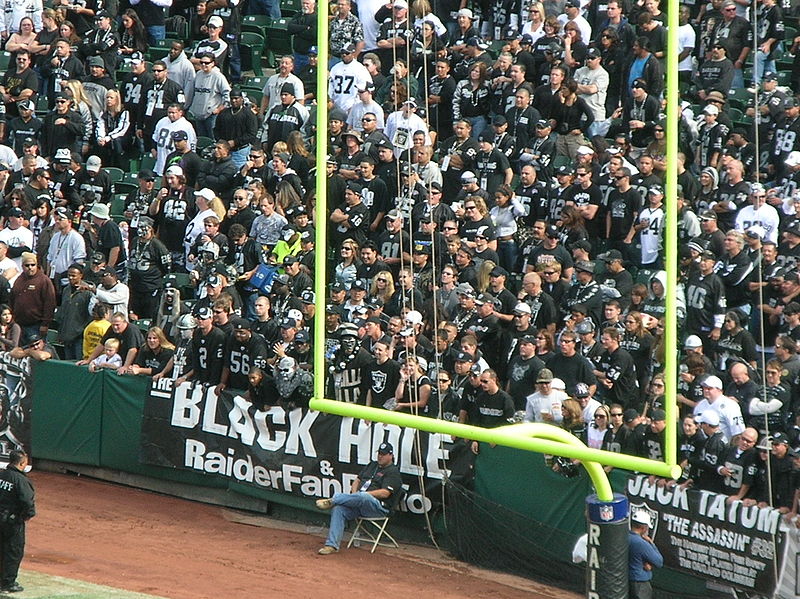SAN FRANCISCO (CN) — A federal judge seems to be on the edge of dismissing the city of Oakland’s antitrust lawsuit against the Las Vegas Raiders and the National Football League for a second time, saying at a hearing Friday that the city hasn’t shown how the league’s structure is anticompetitive.
U.S. District Judge Joseph Spero said the city — until recently the home of the Raiders — hasn’t convinced him that it could have hosted another team but for the NFL’s market restrictions, particularly its 32-team limit.
“The question is whether or not Oakland has plausibly alleged that without the 32-team restriction the Raiders would have stayed, or Oakland would have gained another NFL franchise,” Spero said.
Representing the city of Oakland, attorney Bruce Simon told Spero the NFL has imposed a number of anticompetitive restrictions on host cities in addition to the team cap, including its rule that all teams must collectively vote on whether another team can stay in a particular city or leave for a new one. Teams also share in the revenues from the relocation fees the NFL collects when teams move.
Simon said the NFL’s structure makes it economically infeasible for new teams to enter the league, curtailing Oakland’s chances of being a host city again.
"It is highly unlikely, if not impossible at this point, that another team would come in or that another owner out there would try to come in because it would be futile. The NFL would fight it tooth and nail, and the economics of coming in at this point, the supracompetitive prices you have to pay to enter the league, are so high it doesn’t make economic sense,” Simon said, adding that the NFL also takes advantage of the fact that there is no substitute for its product.
"When you take that whole package together it puts the supply limitation in a different context.”
In its original complaint filed in 2018, the city argued the NFL acts as a cartel that bullies host cities into paying through the nose to hold onto their teams, including bankrolling costly new stadiums.
The lawsuit targeted the Raiders’ decision to leave Oakland, where the team was formed in 1960. The Raiders accepted an offer to move to Las Vegas, which promised to build a $1.4 billion stadium with $750 million in public funding and a retractable roof. The move was approved by every other NFL team except the Miami Dolphins, whose owner Stephen Ross said the team should have tried harder to compromise on a stadium deal with Oakland. The lawsuit says the Raiders paid the NFL a “relocation fee” of $378 million for its blessing.
Spero dismissed the action with leave to amend in 2019.
On Friday, Spero said he hadn’t changed his mind that the fee wasn’t restrictive. “The payment of the fee means you can move where you want,” he said.
Spero also asked Simon what he meant when he said the market should dictate the number of teams.
“If what you’re saying was true there can never be any restrictions,” Spero said. “It has to be open season; anyone can come in and be an NFL team.”
Simon answered, “You can do all you can to regulate your league without artificially restraining the number of teams that come into the league.”
Spero wasn’t satisfied. “You are saying the league cannot restrict at all the number of teams that come into the league,” he said.
Simon replied, “They cannot restrict in an anticompetitive way the number of teams that come in the league. The way it’s structured they are operating in a way to put an anticompetitive restriction on the number of teams.”
Spero called that “a distinction without a difference.”
The Raiders’ attorney Daniel Asimow said there appears to be no scenario in which the NFL wouldn’t be sued over the team’s departure. “This is a political case in search of an antitrust theory. It started about a team leaving, now it’s about a team not coming,” he said. “It’s an attack on sports league structures altogether.”
Spero said he would take the case under submission.
Subscribe to Closing Arguments
Sign up for new weekly newsletter Closing Arguments to get the latest about ongoing trials, major litigation and hot cases and rulings in courthouses around the U.S. and the world.








